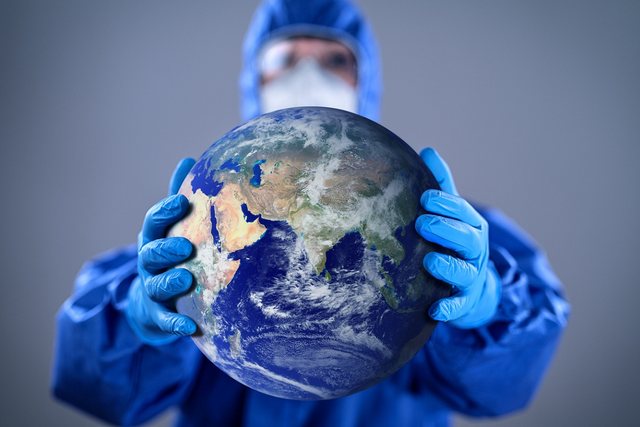
By Francis Fukuyama
Major crises also have major consequences, usually unforeseen. The Great Depression fueled isolation, nationalism, fascism, and World War II, but it also brought about the New Deal, the establishment of the United States as a global superpower, and ultimately the process of decolonization.
The terrorist attacks of September 11, 2001, produced two failed US military interventions, the rise of Iran, and new forms of Islamic radicalism. The financial crisis of 2008 caused an increase in anti-establishment populism, which replaced the ruling leaders around the world.
Future historians will certainly trace relatively large effects caused by current coronavirus pandemics. But the challenge is discovering them sooner. It is now clear why some countries have been better than others in managing the crisis so far, and these are all reasons why these trends continue.
And that has nothing to do with the type of regime. Some democracies have reacted well, others have not, and the same is true of autocracies. Influential factors regarding successful responses to pandemics are state capacity, social trust, and leadership.
Countries with all three of these elements. A competent state apparatus, a government that citizens trust and listen to, and effective leaders kanë have had an impressive response, limiting the damage they have suffered from Covid-19.
Meanwhile, countries with dysfunctional states, polarized societies or weak leadership have reacted poorly, leaving citizens and their economies exposed and much more vulnerable to the virus. The more you learn about Covid-19, the more it looks like it will last a crisis, measured in years rather than 3 months.
The virus is appearing less deadly lately, but remains highly contagious and is transmitted in many cases without any symptoms. This has made people tend not to take it as seriously as they should, and this way the virus will continue to spread widely across the globe, causing a large number of deaths.
There will be no moment when countries will be able to declare their victory over the disease. Rather, economies will open slowly. Hopes for a V-shaped recovery seem overly optimistic. Most likely that of economic growth, it will be an L-shaped curve with a long tail or a few Ã?.
The world economy will not return to its pre-Covid state very soon. And in economic terms, a long crisis means more business bankruptcies, and major damage to industries such as shopping malls, retail chains, and tourist trips.
Only large companies will be able to withstand the blow, with tech giants coming out mostly profitable, as digital interactions are becoming increasingly important. But in the meantime, the political consequences could be even more significant. Populations may be forced to do heroic acts of collective self-sacrifice for a while, but not forever. A long-term epidemic, combined with numerous job losses, a protracted economic recession and a very large debt, will inevitably create tensions, which then turn into a political reaction.
Against whom, this is still unclear. The United States has had a very bad reaction to pandemics, and this has further diminished its international prestige. The global distribution of power will continue to shift to the east, as East Asia has been more adept at managing the situation than Europe or the United States.
Although the pandemic started in China, and Beijing initially hid it by allowing it to spread, China will benefit from the crisis, at least in relative terms. Over the next few years, pandemics could lead to relative decline in the United States, the continued erosion of the liberal international order, and the resurgence of fascism around the globe.
But it could also bring about a rebirth of liberal democracy, a system that has many times surprised skeptics, displaying an extraordinary power of resistance and renewal. Elements of both visions will appear in different locations.
Unfortunately, unless the current trends change dramatically, the forecast is generally bleak. And the negative consequences are easy to imagine. Nationalism, isolation, xenophobia, and attacks on the global liberal order have increased over the years, and this trend will only be accelerated by pandemics.
Governments in Hungary and the Philippines have taken advantage of the crisis to give themselves emergency powers, pushing them even further away from democracy. Many other countries, including China, El Salvador and Uganda, have taken similar measures.
Obstacles to the movement of people have appeared everywhere, even in the heart of Europe. Instead of cooperating constructively for their common good, the countries have closed themselves, quarreled with each other, and made their rivals "Turkish heads" to justify their failures.
Rising nationalism will increase the likelihood of an international conflict. However, given the continuing stabilizing force of nuclear weapons, and the common challenges faced by all major actors, international turmoil is less likely than domestic ones.
Poor countries with overcrowded cities, and poor health systems will be hit harder than others. Not only social distancing, but also minimal hygiene such as hand washing is extremely difficult in places where many citizens do not have regular access to clean water.
The shift caused by climate change was already a slow-moving crisis in the southern hemisphere. The pandemic will complicate its effects, turning large populations in developing countries closer to the threshold of survival. Popular anger will increase, and the increased expectations of citizens are classic recipes that can lead to revolutions.
Desperate people will try to migrate, demagogue leaders will take advantage of the situation to rise to power, corrupt politicians will seize the opportunity to steal what they can, and many governments will collapse.
Former pandemics have fueled new apocalyptic visions, cults, and religions, which revolve around extreme anxieties caused by prolonged hardships. In fact, fascism could be seen as such a cult, born of violence and mass displacement of populations, caused by the First World War and its aftermath.
However, just as the Great Depression not only produced fascism but also revived liberal democracy, the current pandemic could produce some positive political results. The practical realities of pandemic management favor professionalism and expertise, and easily highlight demagoguery and incompetence.
Due to the arrogance of Zhair Bolsonaro, Brazil is currently mired in a health disaster. In Russia, Vladimir Putin first tried to underestimate the risk of pandemic, then claimed that Russia had it under control, and now approaches are changing when Covid-19 is spreading across the country.
Putin's legitimacy, which was weakening before the crisis, may be further diminished. The gap between rich and poor, both among people and countries, has deepened from the crisis, and will grow further during a protracted economic stagnation.
But along with the problems, the crisis has also revealed the ability of governments to provide solutions, relying on collective resources. A constant sense of "only together" can foster social solidarity, but also the development of more generous social defenses, just as the great national sufferings of World War I and Depression stimulated the growth of welfare states in the 1920s and 1930s. .
In April, the U.S. Congress approved a $ 2.3 trillion aid package to support businesses and individuals affected by the pandemic. And this crisis could increase support for government intervention in addressing other major social problems.
And finally, the crisis could spur a renewed international cooperation. As national leaders engage in the game of who is to blame for pandemics, scientists and public health authorities around the world are deepening their networks and connections.
Taken with abbreviations from "Foreign Affairs" - Bota.al





